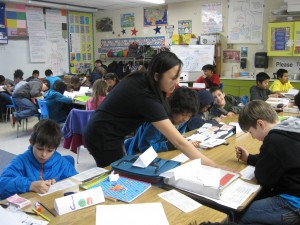I stumbled across an article called “31 Steps to a Financial Tuneup” (http://www.nytimes.com/interactive/2010/03/24/your-money/financial-tuneup-checklist.html) and I found it very interesting that many of the steps listed I had never made time for, even though I should. They are simple to-do items that really can pay off for you if you do them right. Some include:
– Putting more of your paycheck away to savings
– Increasing your student loan payment, if you are able to
– Cash in your rewards from credit cards
– Spend your gift cards
Although, we get caught up in the hustle and bustle of life we should never neglect our personal finances, as little adjustments can really make all the difference. What I particularly like about this article is that it not only tells you that you should do it but it explains why it’s important and lists additional resources for where you can find more information on the matter. In one section the author suggests that every person should put away 1% more of their paycheck, as it can add up to thousands over the long run (the power of interest!). This is something that I think about all the time, yet I never make arrangements for it to happen. When we don’t see something usually we won’t miss it so what really is 1 or 2%?? There are a lot of these items throughout the list that really make you think “Wow, I can do that!”
What I found most interesting is that most of these “to-do” items take not even an hour! Yes, some of them are very generous on time, such as shopping for new home and auto policies only taking two hours but for the most part they seem pretty accurate on timing. Also, a lot of these things don’t really apply to me (yet) so my checklist would be even shorter than 31 items.
I encourage everyone to take a look at this article. Hopefully, it sparks some interest on how you can make little steps to improve your finances! Also, as we all know there are more than 31 steps needed to tune-up your finances – do you think an important step is missing? If so, what is it?

